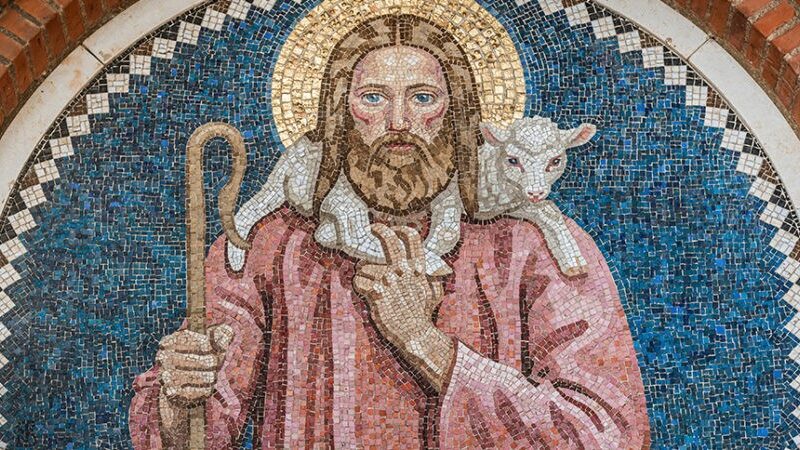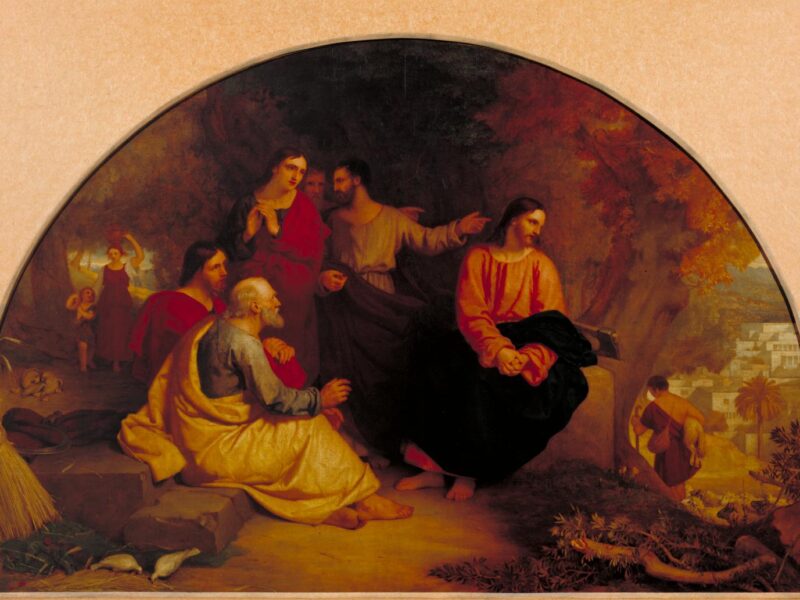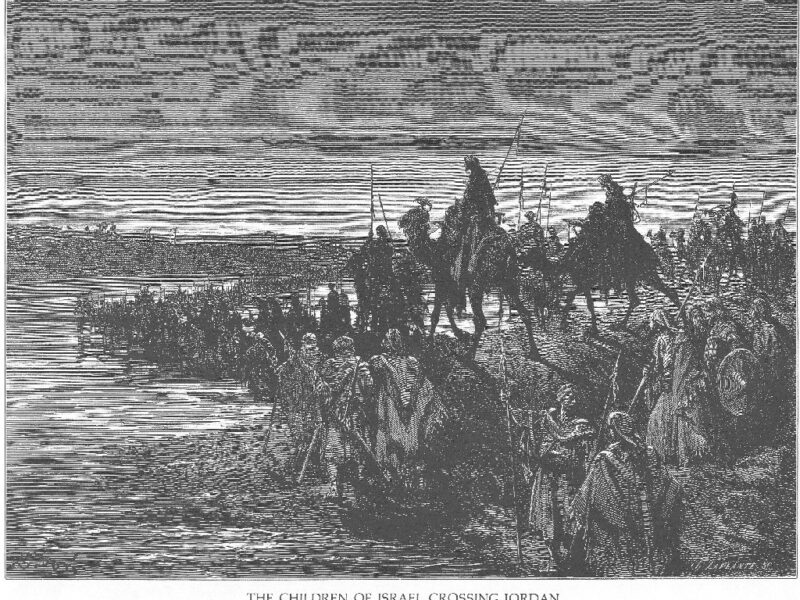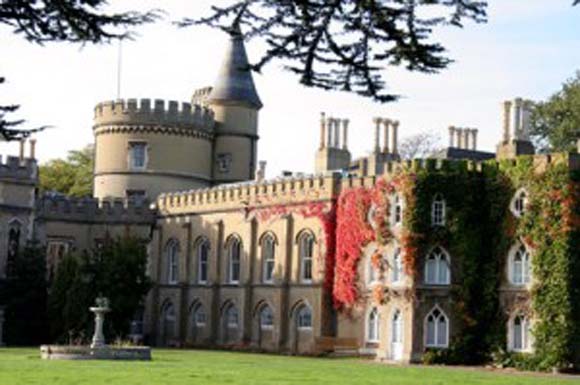
Papal Visit II: Strawberry Hill and Pope’s Grotto
 The Romantic revival of interest in the Middle Ages was under way towards the end of the 18th century. In fact Strawberry Hill may be regarded as one of the places that stimulated that revival in England. People came to see it even in Walpole’s time, an early form of tourism that strengthened his social standing and his reputation as an innovator in style. The eccentricities of the Victorian styles yet to come are already anticipated in the fireplaces, gilded ceilings and doorways imitating medieval tombs and vaults, as well as in the painted glass windows with their curious mixture of biblical and secular motifs. Walpole’s antiquarian interests were in keeping with the décor of the house and he built up an eccentric but impressive collection of antiquities, artworks, manuscripts and curios.
The Romantic revival of interest in the Middle Ages was under way towards the end of the 18th century. In fact Strawberry Hill may be regarded as one of the places that stimulated that revival in England. People came to see it even in Walpole’s time, an early form of tourism that strengthened his social standing and his reputation as an innovator in style. The eccentricities of the Victorian styles yet to come are already anticipated in the fireplaces, gilded ceilings and doorways imitating medieval tombs and vaults, as well as in the painted glass windows with their curious mixture of biblical and secular motifs. Walpole’s antiquarian interests were in keeping with the décor of the house and he built up an eccentric but impressive collection of antiquities, artworks, manuscripts and curios.
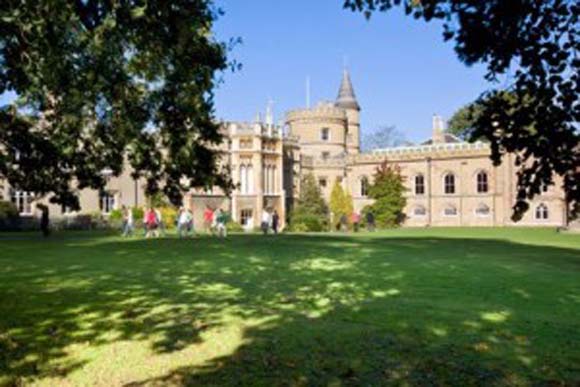 St Mary’s was established in 1850 and was originally housed at Brook Green in Hammersmith, much closer to the centre of London. It was set up to train male Catholic teachers in response to the expansion required in Catholic education in the middle of the 19th century following Catholic emancipation in 1829 and the large Irish immigration to England in the years of the Great Famine. During the second half of its life the Vincentians managed the college until its first lay principal took charge in the mid-1990s. The last forty years or so have seen great changes in Saint Mary’s. It established links with the University of London and more recently with the University of Surrey. It became co-educational and it changed from a teacher training college to a university College. It continues to thrive as a centre of excellence in teacher training and sports science, as well as offering courses and qualifications in theology, religious studies, psychology, English, history, drama and more.
St Mary’s was established in 1850 and was originally housed at Brook Green in Hammersmith, much closer to the centre of London. It was set up to train male Catholic teachers in response to the expansion required in Catholic education in the middle of the 19th century following Catholic emancipation in 1829 and the large Irish immigration to England in the years of the Great Famine. During the second half of its life the Vincentians managed the college until its first lay principal took charge in the mid-1990s. The last forty years or so have seen great changes in Saint Mary’s. It established links with the University of London and more recently with the University of Surrey. It became co-educational and it changed from a teacher training college to a university College. It continues to thrive as a centre of excellence in teacher training and sports science, as well as offering courses and qualifications in theology, religious studies, psychology, English, history, drama and more.
 Visitors to Strawberry Hill are often struck by the name of the pub, Pope’s Grotto, just down the road from the College. Some, knowing the college to be a Roman Catholic institution, have wondered whether the pub is of the same persuasion, christened by a strange piety in honour of Rome (and Lourdes!) But it is not so. The Pope in question is not the Bishop of Rome but the poet and critic, Alexander Pope (1688-1744) who lived nearby during the second half of his life. He was, as it happens, born to Catholic parents at a time when Catholics in England still suffered serious prejudice and repressive legislation. His parents had to move during his childhood in order to comply with restrictions on where Catholics could live. His education was uneven – a mixture of secret schooling, home tutoring and self-education. He suffered a variety of physical ailments and disabilities but these did not prevent him producing an impressive corpus of literary work. In fact Pope seems to have spent as much of his time engaged in controversy with other writers and critics as he did working on his own poems and translations.
Visitors to Strawberry Hill are often struck by the name of the pub, Pope’s Grotto, just down the road from the College. Some, knowing the college to be a Roman Catholic institution, have wondered whether the pub is of the same persuasion, christened by a strange piety in honour of Rome (and Lourdes!) But it is not so. The Pope in question is not the Bishop of Rome but the poet and critic, Alexander Pope (1688-1744) who lived nearby during the second half of his life. He was, as it happens, born to Catholic parents at a time when Catholics in England still suffered serious prejudice and repressive legislation. His parents had to move during his childhood in order to comply with restrictions on where Catholics could live. His education was uneven – a mixture of secret schooling, home tutoring and self-education. He suffered a variety of physical ailments and disabilities but these did not prevent him producing an impressive corpus of literary work. In fact Pope seems to have spent as much of his time engaged in controversy with other writers and critics as he did working on his own poems and translations.
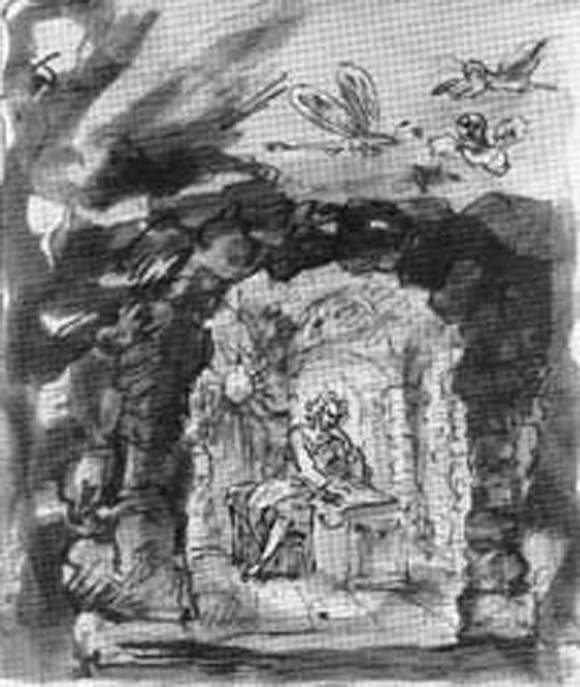 In his later years Pope constructed a romantic ‘grot’ in a tunnel linking his back garden with the Thames. This was decorated with shells and pieces of mirror and it is said that he would sit in this, the original Pope’s grotto, thinking and writing. Although he is now generally regarded as having been overtaken by the great Romantic poets that came after him – Blake and Wordsworth for example – there are anticipations of what was to come in Pope’s nature poetry and in his interest in the medieval love story of Abelard and Heloise.
In his later years Pope constructed a romantic ‘grot’ in a tunnel linking his back garden with the Thames. This was decorated with shells and pieces of mirror and it is said that he would sit in this, the original Pope’s grotto, thinking and writing. Although he is now generally regarded as having been overtaken by the great Romantic poets that came after him – Blake and Wordsworth for example – there are anticipations of what was to come in Pope’s nature poetry and in his interest in the medieval love story of Abelard and Heloise.
One of Pope’s final works is an attack on the government of Sir Robert Walpole whose son Horace was to begin his work of transforming Strawberry Hill, the house up the road, just four years after the death of Alexander Pope.
Some of Pope’s lines have become proverbial: ‘a little learning is a dangerous thing’, ‘blessed is he who expects nothing, for he shall never be disappointed’, and ‘to err is human, to forgive divine’. The sharpness and perennial relevance of his wit are seen in comments like ‘die and endow a college or a cat’, ‘fondly we think we honour merit then, when we but praise ourselves in other men’, and ‘Satan now is wiser than of yore, and tempts by making rich, not making poor’. But there is a kindness rather than sarcasm in this: ‘a man should never be ashamed to own he has been wrong, which is but saying, that he is wiser today than he was yesterday’.
